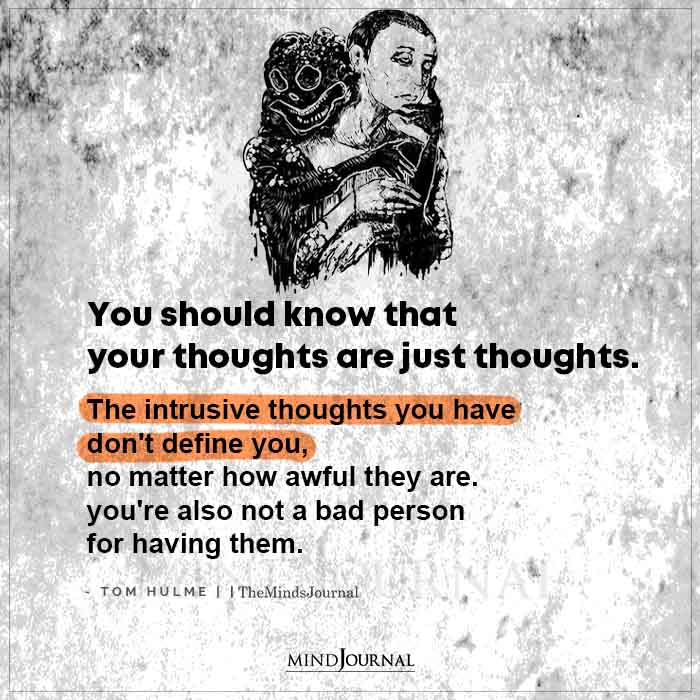Do you know about Acceptance and Commitment therapy, and how it’s fast-growing popularity says that it might be as effective as Cognitive-Behavioral Therapy? This article is going to talk about the reasons why Acceptance Commitment therapy is being considered to be a great form of therapy, and what it’s all about.
KEY POINTS
- ACT is rapidly growing in influence and popularity, and has been found to be at least as effective as CBT.
- ACT is an evidence-based intervention that successfully integrates ancient wisdom.
- Instead of trying to convince the mind to think other kinds of thoughts, ACT encourages us to accept them, and let them go.
Most of you will already have heard of Acceptance and Commitment Therapy (ACT). A third-wave cognitive-behavioural therapy intervention, it was created by Stephen C. Hayes and popularized by Russ Harris.
It is rapidly growing in influence and popularity and meta-studies have found that it is as least as effective as Cognitive-Behavioral Therapy (CBT).(1) It can also be used very successfully in coaching frameworks.
In the most basic terms, ACT is a therapeutic approach “that uses mindfulness and acceptance, and a focus on committed, values-based action.”(2) The six pillars of ACT are cognitive defusion, acceptance, contact with the present moment, self-as-context, values and committed action. We could also say that, quite simply, it teaches the skill of psychological flexibility.
But this is all very abstract. Here is a more personal account of why I love ACT. Not only do I try to live by its key principles, but its techniques are at the heart of my coaching practice.
Related: How Mindfulness Can Improve Your Overall Mental Health
7 Reasons That Make Acceptance and Commitment Therapy Great
1. ‘We are not our thoughts.’
For me, this ancient insight is the very core of ACT. I am someone who has struggled with negative thoughts and a pretty cruel superego all my life, and this remains the most soothing creed of them all.
What my mind habitually tells me – all the negative thoughts, unhelpful self-stories, and harmful interpretations it comes up with – are not the truth. Instead, they are just that: thoughts, stories, interpretations. Noise and chatter. Mere words. If I recognize that, they cannot harm me so much.
ACT assumes there is a permanent, observing self (the “self-as-context”), which is capable of “defusing” from the impermanent chatter of our minds.
Our observing self can be trained to turn our thoughts, emotions, judgments, and beliefs into the object of our discerning attention, rather than allowing them to determine our experience and behavior.
So, rather than taking the thought, “I am unlovable and nobody likes me,” at face value, for example, we can train ourselves to think, “I am having the thought that I am unlovable.”
Or, if it is part of a recurrent self-narrative, we may observe, “There’s that unlovability story again.” (This one is, unfortunately, mine.) In that way, we create a crucial gap between ourselves and these thoughts.
It is in this gap and the act of “defusing” from our thoughts that our power to make wiser decisions lies.

2. Ancient wisdom.
ACT is an evidence-based psychological intervention that is proven to be at least as effective as CBT. But it also has an ancient, spiritual dimension, combining core insights from Buddhism, Stoicism, and Daoism.
From Buddhism it takes its focus on the present moment, and the idea of the observing self that can watch our thoughts disinterestedly, without getting too tangled up in them.
From Stoicism it takes the idea of understanding what we can control and what we cannot control (although the Stoics were more optimistic about the possibility of controlling our thoughts). ACT suggests that we cannot constantly control our thoughts and emotions, nor should we aim to do so.
From Daoism, finally, ACT takes the idea of acceptance and letting go: ACT encourages us to notice unpleasant or unhelpful thoughts, neither to fight or affirm them, and then to let them go.
The idea of acceptance is vital. By accepting our pain and discomfort, and that they are part of life, we can feel them “cleanly.” ACT differentiates between “clean” and “dirty” pain.
Clean pain is the pain we simply accept and allow ourselves to feel. Dirty pain emerges when we try to repress our pain, or feel guilty about feeling it in the first place, or somehow blame ourselves for it.
In that way, we add additional layers to our pain, like pilling on dirt, and make it much worse.
Related: What Does It Mean To Be A Stoic? 19 Common Stoic Personality Traits And Characteristics
3. Creative hopelessness.
ACT is darker than Positive Psychology in spirit — which, as an old-school melancholic, is much more aligned with my vision of the world. It holds that we just have to accept that pain, discomfort, suffering, and negative thoughts and feelings are part of the human condition.
If we spend all of our energy trying to repress these, we will grow tired or fail, and blame ourselves for failing, adding dirt to our pure pain.
Constantly trying to feel good and to disavow negative feelings is a bit like standing in the sea and holding a ball under water for an extended period of time. At some point, our muscles will grow weary and it will pop up all the more violently.
What is worse, we are so focused on holding this ball under water that we miss out on most other things around us. We don’t even think of swimming, splashing around, or floating on our backs.
In ACT terms, it is better to accept that the ball is there, to let it float next to us, and to focus on all the beautiful things we can do in the water regardless.
4. ACT is not about feeling GOOD, but about FEELING good.
A radical counter-proposal to the wearying dictate of the happiness industry that makes us believe we should feel good all the time, ACT accepts that there are two sides to the feeling coin: in order to be a person able to feel genuine happiness, gratitude, love and excitement, we also need to accept that we will feel all of its opposites.
We can’t just cherry-pick the positive feelings.
Constant scanning for danger in our environment used to ensure our survival, and our brains have become masters at this task. Painful thoughts, moreover, are what make us human: They go hand in hand with deeply caring for something or someone.
Unlike in Cognitive Behavioral Therapy (CBT), the aim in ACT is precisely not to waste our energies on fighting, changing, or reasoning our troubling thoughts out of existence.
Instead of trying to convince our minds to think other kinds of thoughts, it encourages us to accept them, and let them go.

5. Holding our self-stories more lightly.
Learning to recognize the stories our mind tells us, but not to fuse with these stories, is a central feature of ACT. Most negative self-stories boil down to the belief that, at our core, we are unloveable, evil, or not good enough.
We may habitually think we are stupid, losers, ugly, useless at romance, or socially awkward. ACT teaches us to notice and name these stories, and then make a decision about whether they are helpful or not.
It thus teaches us to focuses less on content and more on form – urging us not to take the content of mind’s stories too seriously, and looking at our own predicament more humbly.
Related: 10 Identifying Signs Of Self Hatred That Sucks The Life Out Of You
6. Value-led action.
As the name suggests, ACT is ultimately about committing to taking the right kinds of action. Its aim is preparing us for long-term value-led living, rather than short-term goal-oriented striving.
It encourages us to live by the inner compass of our deeper values, and tries to show us how to commit to taking value-led action.
Another useful distinction in ACT that really chimes with me is the difference between habits and rituals. Habits can be counter-productive and unconscious, whilst rituals are deliberately chosen repetitive actions designed to align us more closely with what matters most to us.
ACT’s ultimate aim is to prepare us for success beyond success – value-aligned living.
7. Mind metaphors matter.
The final reason why I love ACT so much is because it takes metaphors seriously. As a writer and literature scholar, I strongly believe that our metaphors matter, especially those we use to describe our inland empires.
Mind metaphors are not just decorative ornaments, but actually shape our experiences and interpretations. ACT practitioners know that, and mobilize the power of metaphor to help us think differently about our mind.
Some of my favourites are the passenger on the bus, the unwanted party guest, and the Sushi train.
Want to know more about Acceptance and Commitment Therapy? Check this video out below!
References:
(1) See A-Tjak et al. 2015; Oest 2014; Smout, Hayes, Atkins, Klausen & Duguid, 2012, for example. (2) Jon Hill and Joe Oliver, Acceptance and Commitment Coaching: Distinctive Features (London: Routledge, 2019), p. ix.
“If you’d like to explore coaching with Anna, feel free to book a free 30-minute coaching exploration call with her here: https://www.annakschaffner.com/contact
Written By Anna Katharina Schaffner Originally Appeared On Psychology Today










Leave a Reply